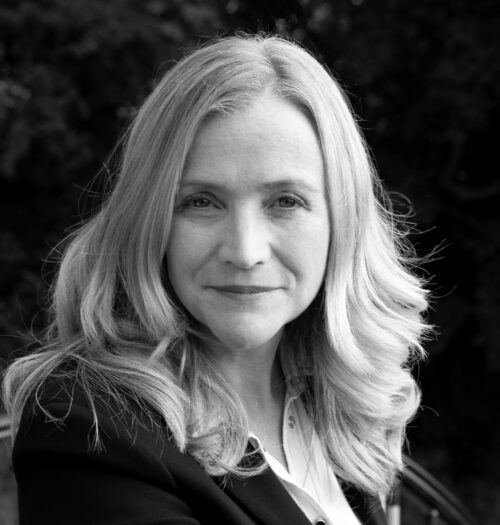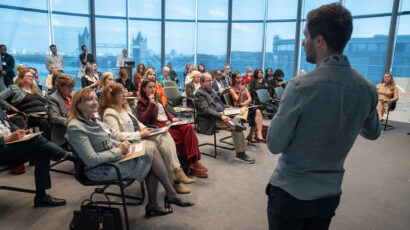
Chapter Zero appoints new Director and its first Chief Executive
Chapter Zero, the UK Directors’ Climate Forum is delighted to announce its new Director and Chief Executive Vicky Moffatt, who joins after an independent portfolio career in sustainable transformation strategy for global multi-nationals, private equity, and NGOs.
Vicky began her career with the fast-track WPP Fellowship working for blue chip multi-nationals living in the US and UK, then co-founding the C-suite Innovation Lab at Saatchi & Saatchi. For the last 15 years she has worked in sustainable transformation and climate with a portfolio of long-term clients. They included the UK Board of PwC, and global C-suite executives at Nestlé, RELX Group and St. James’s Place, as well as a suite of private equity houses. She recently enjoyed three years as global consulting partner at Kantar, WPP.
In addition, Vicky has worked with sustainability NGOs for 15 years; developing the circular economy model with Dame Ellen MacArthur, launching the Ellen MacArthur Foundation, and for CDP, We Mean Business Coalition and Vision for a Nation.
Vicky is a member of the advisory council of the Chatham House Sustainability Accelerator and has served as a Board Director of the Theatre Royal Bath, and a Trustee of the disabled children’s charity KIDS.
This is an exciting appointment for the next stage of Chapter Zero UK as a lead Chapter in our global network now in 53 countries. Chapter Zero serves a critical role in equipping FTSE 350 NEDs to drive action in their boardrooms. Our membership tells us they value our impartiality, convening power and thought leadership. Vicky Moffatt has a strong reputation for inspirational leadership and driving change. As Chapter Zero now accelerates growth and engagement in our membership, Vicky is the ideal person to lead us to the next stage of our development at this critical time for climate change.
Julie Baddeley, Chair of the Board, Chapter Zero
I am honoured to become Chapter Zero’s CEO. Business has a disproportionate role in tackling the urgent climate crisis, and the non-exec boardroom is an underserved community. Through our NED community, Chapter Zero is driving impact on climate at scale. I couldn’t be more passionate about leading the organisation alongside our committed Board and partners. We are all working together with urgency to accelerate to the net-zero economy.
Vicky Moffatt, Chief Executive Officer, Chapter Zero



